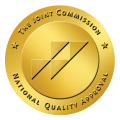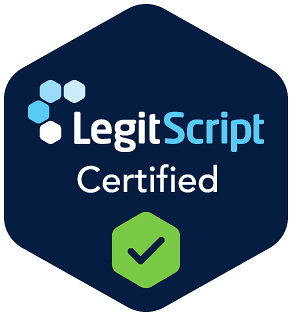When speaking in terms of addiction treatment programs for substance abuse, there are various levels of care.
The levels of care for those individuals struggling with addiction to drugs or alcohol can range from a medically supervised inpatient drug and alcohol detox, a residential inpatient treatment program (clinical stabilization service), a full-day treatment program (FDT program), a half-day treatment program (HDT program), or an outpatient program (OP program).
Higher levels of care provide more structure and clinical supervision from physicians due to medical necessity. When people hear these terms, they may wonder what exactly the different terms mean. Each level of care offers different substance abuse treatment aspects depending on where an addicted individual may be in their recovery process.
In our previous blog post, we discussed how a full-day treatment program works. In this blog post, we will discuss what a half-day treatment program is and how it works.
What Is a Half-Day Treatment Program?
A half-day treatment program (also known as an HDT or HDT program) is one of the levels of care for substance use disorder treatment at an outpatient level. This means that drug- or alcohol-addicted individuals receive treatment for substance abuse from their own homes or while they are residing in a Sober Living Community.
An HDT program is traditionally for those who have already gone through a medically supervised inpatient drug and alcohol detox or a residential treatment program (clinical stabilization service or CSS) and then completed an FDT Program. However, some individuals may utilize an HDT program if they can put down drugs or alcohol for a time but struggle to maintain their sobriety.
Half-day programs provide structure and accountability, which is crucial in early recovery to achieve long-term sobriety. A typical HDT program is held Monday through Friday for 3 hours each week of therapeutic addiction treatment. The therapy in this program consists of 15 hours each week and includes group therapy sessions as well as one hour of individual therapy for each client.
An HDT program is flexible to the needs of the addicted individual as at this point, they will be in a transitional phase where they are beginning to return to their everyday life. As such, a half-day program makes accommodations for the obligations of family and work life and can be as little as 9 hours of therapy each week.
Individual Therapy in an HDT Program
Individual therapy in a half-day program serves to address the underlying causes of the drug- or alcohol-addicted individual’s addiction. A therapist will meet in a one-on-one setting with clients as they go over the individual’s unique issues in a healthy, safe, and supportive setting. The therapist will utilize various therapeutic modalities during the individual therapy session.
By incorporating Motivational Interviewing (MI), Cognitive-Behavioral Therapy (CBT), Rational Emotive Behavior Therapy (REBT), Dialectical Behavior Therapy (DBT), and Trauma-Informed Therapy in the sessions, the therapist will be best suited to affect a positive outcome in the drug or alcohol addicted individual’s treatment plan.
Group Therapy in an HDT Program
Group therapy sessions are held between a group facilitator, usually a counselor or therapist, and the clients in the program. During group therapy, a drug- or alcohol-addicted individual will meet with their peers in a safe and supportive environment as they go over topics that will help the drug or alcohol addicted in their recovery.
Group therapy topics can include:
- Psychoeducational Groups – These groups provide education on multiple topics such as anger management, trauma, conflict resolution, the relapse process, the neurobiology of addiction, nutrition, health and wellness, and family systems.
- Cognitive-Behavioral Groups – These groups focus on building new skills, they can help develop effective anger management techniques and tools for relapse prevention, and explore thoughts in early recovery.
- Skills Development Groups – These groups work on developing techniques and applying what is learned in the Cognitive-Behavioral Groups as well as incorporating life-skills development and meditation techniques.
- Support Groups – By providing a safe space for the participants to discuss various topics and allow for feedback to others. Some Support Groups include relapse prevention, trauma, and gender-specific topics.
- Interpersonal Process Groups – These groups are like Support Groups. They allow participants to provide feedback on the topic but also examine the reactions and feelings of their peers who share during the group.
By having drug- or alcohol-addicted peers together for group therapy, individuals will realize that they are not alone in their struggles with addiction. Group therapy serves to create a healing environment of recognition as well as teach valuable skills to those who struggle with substance abuse.
What Other Services Are Offered in an HDT Program?
Beyond the therapy sessions offered through a half-day program at a drug and alcohol rehab facility, several services are offered to individuals. These additional services aim to help drug- or alcohol-addicted individuals during their early recovery and facilitate aftercare planning.
Some of the services offered in a half-day program are: Family Counseling, Medication Management, Medication-Assisted Treatment, and Case Management. By providing services that give the drug- or alcohol-addicted individual less to worry about, an HDT program helps to lessen stress and anxiety during their early recovery.
Where Can I Find an HDT Program in Massachusetts?
Aftermath Addiction Treatment Center is an outpatient drug and alcohol rehab program located in Wakefield, MA. If you or a loved one struggles with drugs or alcohol and has difficulty maintaining sobriety, Aftermath offers a half-day treatment program as one of the levels of care for substance use disorder.
The program at Aftermath incorporates a compassionate approach to combatting the disease of addiction. The Aftermath team prides itself on a highly ethical and therapeutic approach to treating addiction to drugs or alcohol. They also offer a Virtual HDT Program through Telehealth Virtual Services for those who have obligations at home but still look to receive quality addiction treatment for their substance abuse.
The HDT program at Aftermath Addiction Treatment Center in Wakefield, MA is ideal for those transitioning back to their daily routine who need a bit more of a supportive and structured environment in early recovery.








